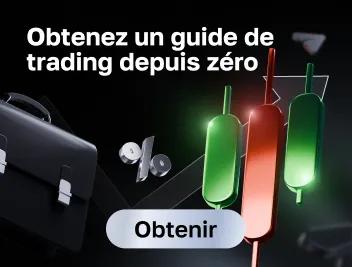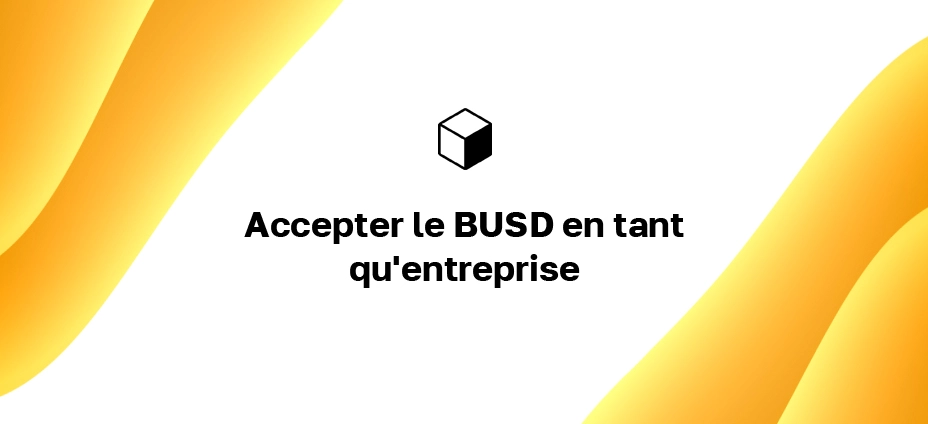
Le Trading de Crypto-monnaies vs le Trading Forex
Table des matières
Les échanges de crypto et le trading Forex offrent tous deux des voies populaires pour accéder aux marchés financiers. Cependant, ils présentent de nombreuses différences, ce qui rend le choix difficile.
Ce guide comparera ces deux marchés. Nous examinerons chaque marché de près, discuterons des facteurs clés et vous aiderons à trouver celui qui correspond le mieux à vos besoins.
Qu'est-ce que le Trading Forex ?
Le Forex est l'endroit où les devises sont échangées à l'échelle mondiale. C'est un espace décentralisé où les banques, les entreprises et les particuliers échangent des devises pour tirer profit des variations des taux de change. Par exemple, un trader pourrait échanger des dollars américains contre des euros, espérant que l'euro s'appréciera par rapport au dollar.
Le trading se fait par l'intermédiaire de courtiers et fonctionne 24 heures sur 24, cinq jours par semaine, connectant les marchés à l'échelle mondiale. Avec un volume de transactions quotidien dépassant les 6 trillions de dollars, c'est le plus grand et le plus liquide des marchés au monde.
Trading Forex : Avantages et Inconvénients
Le Forex peut sembler un concept familier au départ, mais vous devez bien comprendre les détails avant de vous lancer. Les avantages incluent :
- Liquidité : Grâce à son grand volume de transactions, le marché Forex rend les échanges de devises rapides et fluides, avec des fluctuations de prix minimales.
- Conformité légale : Contrairement aux crypto-monnaies, le Forex est un marché hautement régulé, ce qui rend vos gains faciles à retirer sans complications juridiques.
- Effet de levier : Les courtiers Forex offrent un fort effet de levier, ce qui permet aux traders de contrôler des positions plus importantes avec moins d'argent. Cela peut augmenter les profits, mais aussi accroître le risque.
- Coûts faibles : Dans le Forex, les coûts de transaction proviennent principalement de l'écart entre les prix d'achat et de vente.
Quant aux inconvénients, ils incluent :
- Exigences d'entrée complexes : Pour trader sur le Forex, vous devez vous inscrire auprès d'un courtier et disposer généralement d'un capital important pour effectuer des transactions significatives.
- Dynamique de marché complexe : Pour faire du trading Forex, vous devez comprendre comment les taux d'intérêt, l'inflation et les événements mondiaux affectent les prix des devises.
- Surveillance constante : Étant donné que le marché ne ferme jamais, les traders doivent être toujours attentifs aux variations des prix.
- Les gains sont imposés : Les courtiers suivent les gains réalisés sur le Forex et les soumettent à l'impôt, ce qui peut être compliqué dans les endroits où les lois fiscales sont strictes.
Qu'est-ce que le Trading de Cryptomonnaies ?
Le trading de crypto et le trading Forex sont très différents, le Forex traitant des devises traditionnelles et les crypto-monnaies se concentrant sur des actifs numériques. Le crypto trading concerne les actifs décentralisés et se déroule sur plusieurs échanges, sa valeur étant influencée par des facteurs tels que la perception publique, les taux d'adoption et les évolutions technologiques.
Les marchés des crypto-monnaies sont notoirement volatils, avec des prix fluctuant fortement et de manière inattendue. Ces changements peuvent entraîner des profits importants, mais comportent également des risques de pertes substantielles.
La manière la plus pratique de trader des cryptomonnaies est via des plateformes comme Cryptomus. Elle propose plus de 100 paires de trading, avec des frais de maker compétitifs aussi bas que 0,08% à -0,01% et des frais de taker allant de 0,1% à 0,04%. En plus de sa structure tarifaire avantageuse, Cryptomus assure un environnement de trading sécurisé avec des fonctionnalités telles que la 2FA et les protocoles AML pour protéger les utilisateurs.

Trading de Cryptomonnaies : Avantages et Inconvénients
Avant d'investir dans des marchés aussi dynamiques que celui des crypto-monnaies, prenez le temps de peser les côtés positifs et négatifs. Les avantages sont les suivants :
- Potentiel de profit : Grâce aux grandes variations de prix, les tokens offrent aux traders une chance de réaliser des profits rapidement. En même temps, le Forex est plus stable mais offre moins de chances de gains élevés.
- Décentralisation : Sans contrôle gouvernemental ou bancaire, les crypto-monnaies offrent aux traders plus d'indépendance.
- Marché 24/7 : Le marché des crypto-monnaies ne dort jamais, ce qui permet aux utilisateurs de trader à tout moment, même le week-end et pendant les vacances.
- Sécurité : Les crypto-monnaies utilisent la technologie blockchain pour la sécurité et la transparence, ce qui aide les traders à se sentir plus en sécurité. De plus, vos fonds ne peuvent pas être bloqués si vous utilisez des DEX, tandis que le Forex permet des restrictions faciles.
- Barrière d'entrée faible : Il est facile de commencer à trader des tokens avec un petit montant d'argent et un compte sur un échange de crypto-monnaies.
- Frais faibles : Le crypto trading offre des frais plus bas pour les transferts de fonds par rapport aux méthodes traditionnelles.
Les inconvénients incluent :
- Volatilité : La volatilité des crypto-monnaies peut offrir des opportunités de gains, mais elle entraîne également des baisses rapides des prix. Les traders non préparés aux changements soudains pourraient trouver cela risqué.
- Incertitude réglementaire : Les différentes réglementations sur les crypto-monnaies dans le monde peuvent créer de l'incertitude, affectant les prix et les transactions.
- Liquidité faible pour les petites pièces : Tandis que les grandes crypto-monnaies sont liquides, celles qui sont moins populaires peuvent avoir un faible volume de transactions, rendant leur prix plus volatile.
- Sécurité : Bien que la blockchain soit sécurisée, les pirates informatiques attaquent les échanges et les portefeuilles, ce qui soulève des inquiétudes sur la sécurité des actifs. Soyez donc prudent avec les CEX et les portefeuilles custodiaux et utilisez uniquement des plateformes fiables comme Cryptomus.
- Risque d'effondrement total : Certaines crypto-monnaies peuvent échouer complètement ou perdre une valeur significative, entraînant la perte totale du capital investi.
Crypto Trading vs Forex Trading
Nous avons vu les bases de chaque type de trading, comparons-les maintenant. Lorsqu'il s'agit de rentabilité entre le Forex et les crypto-monnaies, cela dépend principalement de votre approche et de votre capacité à gérer le risque. Les crypto-monnaies peuvent être plus rentables en raison de leur volatilité, mais elles comportent également un risque beaucoup plus élevé que le Forex, qui offre des rendements plus stables.
L'option la plus rentable dépend vraiment de la manière dont vous gérez les risques et de vos connaissances du marché. Dans ce contexte, le Forex est guidé par des facteurs économiques plus simples, tandis que les crypto-monnaies peuvent être plus difficiles à comprendre. Pour les débutants, le Forex est souvent mieux, compte tenu de sa volatilité plus faible, de son cadre réglementaire plus clair et de ses nombreux supports d'apprentissage.
Pour ceux qui prospèrent dans des scénarios à haut risque et à haut rendement, le crypto trading pourrait valoir la peine d'être considéré. Heureusement, il existe de nombreuses ressources pour vous aider à comprendre les bases des crypto-monnaies et des aspects plus complexes.
Résumé
Nous avons exploré comment le Forex et les crypto-monnaies offrent des possibilités et des défis différents. Le choix vous revient entièrement, et voici un résumé rapide pour vous aider à décider.
Le trading de crypto est adapté à vous si :
- Vous aimez le trading rapide avec un potentiel de gains rapides.
- Vous pouvez gérer les risques liés aux règles changeantes et à l’instabilité du marché.
- Vous êtes intéressé par de nouvelles technologies comme la blockchain et souhaitez en apprendre davantage.
- Vous souhaitez investir dans des actifs qui ne sont pas contrôlés par les banques ou les gouvernements.
- Vous voulez ajouter des actifs non traditionnels à votre portefeuille.
- Vous croyez à l'avenir des crypto-monnaies.
Le trading Forex est adapté à vous si :
- Vous préférez un marché plus stable avec moins de volatilité.
- Vous débutez et souhaitez un marché stable et régulé.
- Vous voulez des transactions stables à long terme avec des tendances prévisibles.
- Vous préférez trader des actifs traditionnels comme les devises nationales.
- Vous avez besoin d’un marché suffisamment liquide pour trader de grandes quantités.
Quel que soit l'option que vous choisissez, prenez le temps d'en apprendre davantage et évitez de vous précipiter dans vos décisions sans une compréhension complète. Espérons que ce guide vous a été utile ! Soumettez vos réflexions et questions ci-dessous !
Simplifiez votre parcours cryptographique
Vous souhaitez stocker, envoyer, accepter, miser ou échanger des crypto-monnaies ? Avec Cryptomus, tout est possible - inscrivez-vous et gérez vos fonds de crypto-monnaie avec nos outils pratiques.
Commencer









